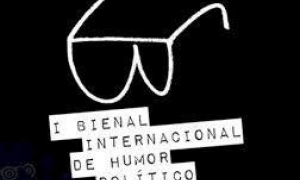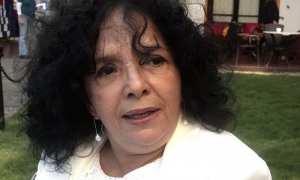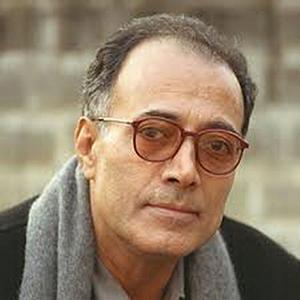
Recently, 358 movie directors released their selection of the 15 best films of all time. As far as lists go, this one is worthy of attention, since it was crafted taking all into consideration as equals.
The classics of world cinema chosen were: 15. The Passion According to Andrei (1966) - Andrei Tarkovsky; 14. The 400 Blows (1959) - François Truffaut; 13. Persona (1966) - Ingmar Bergman; 12. Raging Bull (1980) - Martin Scorsese; 11. Breathless (1960) - Jean-Luc Godard; 10. The bicycle Thief (1948) - Vittorio de Sica; 09. The Mirror (1974) - Andrei Tarkovsky; 08. Vertigo (1958) - Alfred Hitchcock; 07. The Godfather (1972) - Francis Ford Coppola; 06. Apocalypse Now (1979) - Francis Ford Coppola; 05. Taxi Driver (1976) - Martin Scorsese; 04. 8½ (1963) - Federico Fellini; 03. Citizen Kane (1941) - Orson Well; 02. 2001: A Space Odyssey (1968) - Stanley Kubrick and 01. Tokyo Story (1953) - Yasujirō Ozu.
It is satisfying for Cuban movie lovers to read the list and note that all have been screened on the island. There are currently multiple ways to access film, from a flash drive, television, a laptop or tablet, even via your telephone, but before all of this technology, we had the magic of movie theaters - the big screen in a dark room. This is how the world's best 15 films, according to the latest list makers, were seen in Havana.
The reasons for this reality in Cuba are unique. Given the economic, commercial, financial U.S. blockade imposed since the 1960s, Hollywood movies have been out, but the best, and at times the worst, from around the world arrived. The establishment of the International Festival of New Latin American Film was a splendid landmark, making it possible to see what was being done in the region, via truly international playbills.
Returning to technological advances… there is undoubtedly a positive aspect, the country entered the digital age, but these changes also brought a step backward in terms of content. Movie theaters in Havana have lost audiences to private distributors of what is called the "package" - with hundreds of gigabytes of audiovisual material a week.
There are two Hollywoods: a marvelous one of extraordinary film, artists, directors, scriptwriters; and the "b" production line which fills the "package." Aspiring to turn taste around is far-fetched, but if good film continues to be screened, tastes can be improved.
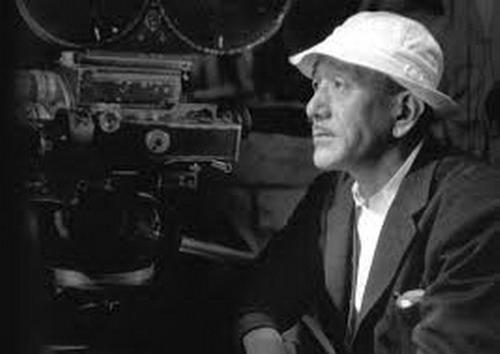
Havana is a lucky city. Throughout the year, the Film Institute's Cinemateca presents innumerable weeks and special days of film that draw spectators to theaters.
Since January, 12 different events have been presented, plus the extensive Festival of French Cinema, covered in these pages last month.
The year began with the presence of none less than one of the world's great directors, Iranian Abbas Kiarostami (Teheran, 1940), and a retrospective of his work.
His notable films include Where is my friend's home? (1987) which brought him international attention, and led to what has become known as Koker's trilogy, with the second installment being Life Goes On (1992) and the final, Through the Olive Trees (1994).
Also from Kiarostami is Taste of cherries (1997), a tranquil reflection on life and death, followed by a French co-production, The wind will carry us (1999) and Certified copy (2010), his first feature length film shot outside of Iran, which won Juliette Binoche a best actress award in Cannes. All of these movies were screened in Havana.
February brought two radically different series, one of Uruguayan film with five titles, and the Romanian Week with nine. Among the Uruguayan films - well-known here given the country's regular participation in the New Latin American Festival - were Miss Tacuarembó (2010) by Martín Sastre and La Demora (2012) by Rodrigo Plá; plus the documentaries Jamás leí a Onetti (2009) by Pablo Dotta and El padre de Gardel (2013) by Ricardo Casas.
Among the Romanian - well worth rediscovering by Cuban audiences with very timely films - were The Doom by Sergiu Nicolaescu (1976), for which Amza Pellea won a prize at the Moscow festival; Duios Anastasia trecea by Alexandru Tatos (1979), a modern re-interpretation of Antigone, which won the leading actress, Anda Onesa, a prize at the Karlovy Vary festival; and The Wedding of Stone by Mircea Veroiu and Dan Piţa (1973), two films in one, included in New York's Museum of Modern Art collection, given its refined aesthetics and balance.
Three important events took place at the Cinemateca in the month of March: the Week of Contemporary Norwegian and Swedish Film, the Francophone Week, and the Sixth Dutch Film Week.
This broad selection of European film included a diverse array of themes addressed in contemporary cinematography and included the presence of director Adrienne Bovet, who presented her film Loin du Bal (during the Francophone festival, while actor Frank Lammers, who played the leading role in The Admiral, by Roel Reiné, attended the film's national premiere during the Sixth Dutch Film Week.
April and May featured Asian film, with weeks of screenings devoted to Singapore and South Korea.
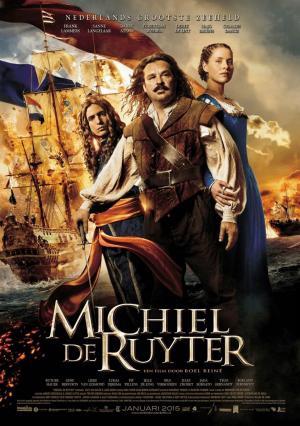
The First Festival of Swedish Cinema opened the month of June with eight films, all making their debut in Cuba. Among the titles were Astrid (Kristina Lindström, 2015), a documentary about the life of the creator of Pippi Longstockings, Astrid Lindgren, one of the world's ten most read authors, whose books have sold more than 150 million copies.
Brazilian filmmaking, a big winner in Havana's Film Festival, sent the city an attractive program for the Pernambuco Film Festival, including seven feature length films and a documentary all shot in this state.
Inaugurating the event was O Som ao Redor (Neighboring Sounds)by director Kleber Mendonça Filho, whose film Aquarius, with Sonia Braga in the leading role, was the only Brazilian film to compete in this year's Cannes Festival.
Also included in the series was Mango Yellow by Cláudio Assis (2003), winner of Coral prizes as a debut work and for photography in the 25th New Latin American Film Festival.
June will conclude with the now customary festival of German film, a tradition reflecting the complex reality of this country through the multiple perspectives of its filmmakers. Sponsored by the Goethe Institute, the program includes some interesting works, practically all as yet unseen here, such as The People vs Fritz Bauer, About a girl, and As we were dreaming.
In addition to these events, weeks, and special days devoted to films from Europe, scheduled June 11-18 is the First Festival of European Cinema, with the screening of 15 films and four documentaries from Germany, Austria, Belgium, Slovakia, Spain, France, Italy, the Netherlands, Portugal and Britain.
Opening the Festival was Leopardi, by Italian director Mario Martone (2015 Italian Golden Globes best picture, David di Donatello Prize to Elio Germano as best male performance in a leading role.)
Reserved for later comment are weekly premieres across the island presented by the Cuban Film Institute (ICAIC).
No doubt, new technology has arrived to film to stay. People now have multiple avenues through which to access film from their homes, although, for a movie lover, there is nothing like the magic of a darkened theater.
Havana is a privileged city. What a lot of good film on the big screen, all year long!


